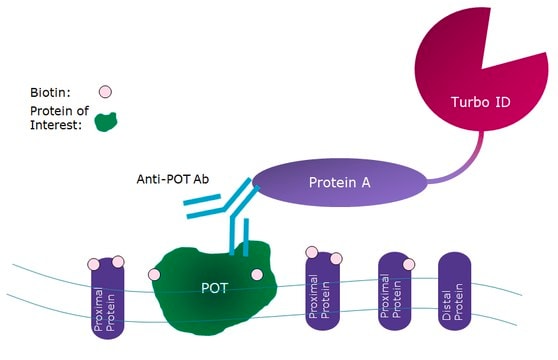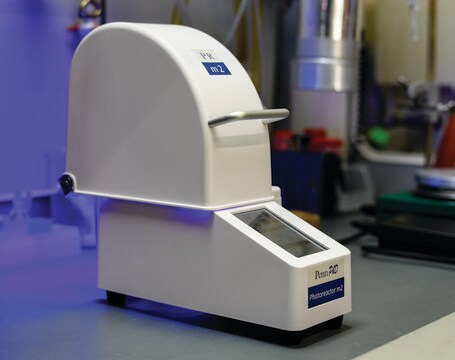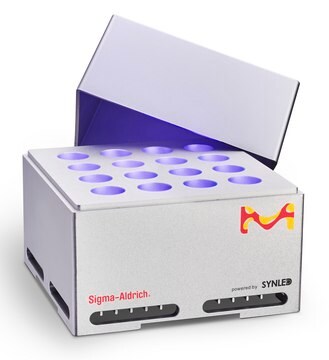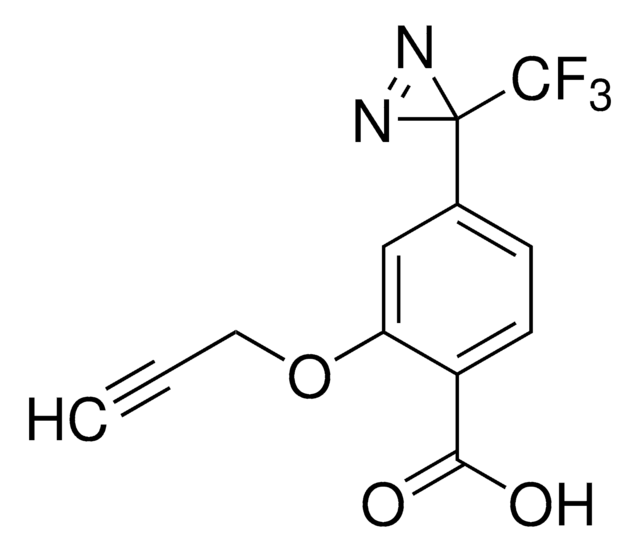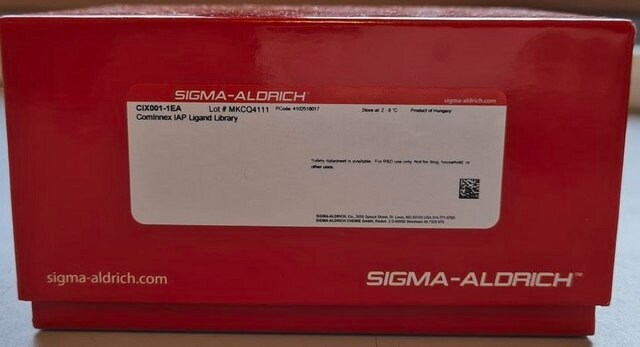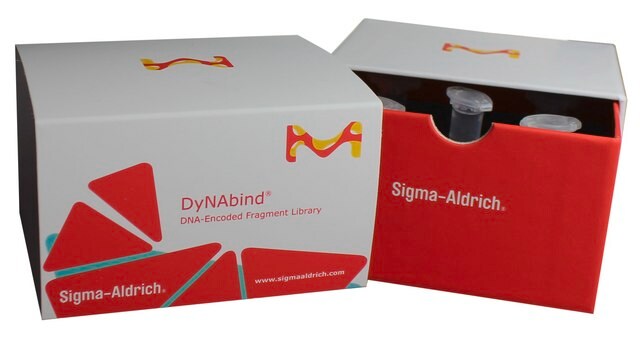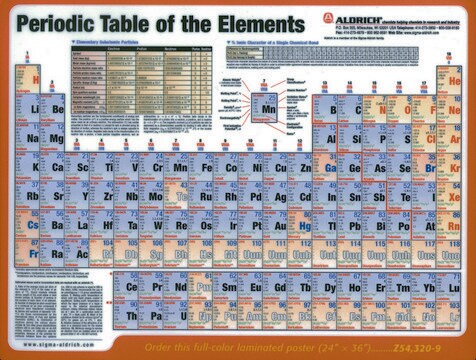ATLASKIT
AtlasKit
Sinônimo(s):
Antibody-photocatalyst conjugate labeling, Microenvironment mapping technology, Photoinduced proximity labeling kit, Protein-protein interaction elucidation technology
Faça loginpara ver os preços organizacionais e de contrato
About This Item
Código UNSPSC:
12161503
NACRES:
NA.22
Produtos recomendados
temperatura de armazenamento
−20°C
Descrição geral
The Atlas MicroMap Kit is a highly precise proximity labeling platform for elucidation of protein-protein interactions on cell membranes. Using an antibody specific to a protein target, the Atlas MicroMap kit crosslinks proteins within a 4 nm radius to identify only those that are within the proximity of the target of interest. The kit contains necessary reagents for performing photoinduced proximity labeling using the Atlas system. The procedures are adopted from those published by the MacMillan Lab in Science . Two sizes of kit are available providing enough antibody conjugate for either 10 reactions (AtlasKit-A) or 20 reactions (AtlasKit-B).
The kit provides a step-by-step procedure for conjugating your antibody to a photocatalyst that localizes light-mediated crosslinking to the antibody′s target and surrounding proteins. First, an azide-containing linker is appended to your antibody that ″clicks″ on an iridium photocatalyst. The resulting antibody-photocatalyst conjugate is added to live cells along with a biotinylated diazirine reagent. Analogous to a satelite, the photocatalyst localizes carbene generation from the diazirine and thus covalently modifies surrounding proteins. The biotin tag allows for enrichment of photo-labeled proteins. As shown in Geri et al., the extent of this photo-induced labeling is within a 4 nm radius of the photocatalyst, providing advanced precision for mapping protein interaction networks.
Read more about micromapping in our Technology Spotlight
Protocol available here
Included:
Not included:
Photoreactors commercially available:
The kit provides a step-by-step procedure for conjugating your antibody to a photocatalyst that localizes light-mediated crosslinking to the antibody′s target and surrounding proteins. First, an azide-containing linker is appended to your antibody that ″clicks″ on an iridium photocatalyst. The resulting antibody-photocatalyst conjugate is added to live cells along with a biotinylated diazirine reagent. Analogous to a satelite, the photocatalyst localizes carbene generation from the diazirine and thus covalently modifies surrounding proteins. The biotin tag allows for enrichment of photo-labeled proteins. As shown in Geri et al., the extent of this photo-induced labeling is within a 4 nm radius of the photocatalyst, providing advanced precision for mapping protein interaction networks.
Read more about micromapping in our Technology Spotlight
Protocol available here
Included:
- Conjugation reagents and buffers, photocatalyst, photo-reactive diazirine-biotin, fluorescent standard for validation
Not included:
- Antibodies (primary, secondary, isotype)
- Light-irradiating photoreactor (suggestions below)
- Protein concentration assay (BCA assay recommended)
- Plate reader
- Spin desalting columns (7K MWCO, 2 mL recommended)
Photoreactors commercially available:
Aplicação
Proximity protein labeling, protein-protein interactions, photoaffinity labeling, proteomics
Ações bioquímicas/fisiológicas
Kit of components packaged in individual vials for enabling photoinduced proximity labeling. Kit includes reagents for antibody conjugation, click chemistry, and photo-labeling of protein. Chemistry is compatible with customer-specific antibody (not supplied as part of kit) for proteins of interest. Kits are available for either 10 reactions (AtlasKit-A) or 20 reactions (AtlasKit-B).
Código de classe de armazenamento
10 - Combustible liquids
Escolha uma das versões mais recentes:
Certificados de análise (COA)
Lot/Batch Number
It looks like we've run into a problem, but you can still download Certificates of Analysis from our Documentos section.
Se precisar de ajuda, entre em contato Atendimento ao cliente
Já possui este produto?
Encontre a documentação dos produtos que você adquiriu recentemente na biblioteca de documentos.
Nossa equipe de cientistas tem experiência em todas as áreas de pesquisa, incluindo Life Sciences, ciência de materiais, síntese química, cromatografia, química analítica e muitas outras.
Entre em contato com a assistência técnica